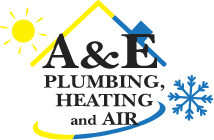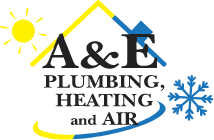
When it comes to installing or replacing an HVAC system, one of the biggest worries is feeling overcharged or paying for things you don’t fully understand. You deserve a quote that’s clear, fair, and honest—without worrying about hidden fees or being swindled.
or paying for things you don’t fully understand. You deserve a quote that’s clear, fair, and honest—without worrying about hidden fees or being swindled.
With over 16 years of experience in the HVAC industry, we’ve built our reputation on transparency and trust, helping homeowners like you make confident decisions.
In this article, we’ll show you exactly what’s included in a standard HVAC system quote, so you can avoid surprises, spot red flags, and ensure every dollar you spend is worth it.
Breaking Down an HVAC System Quote
An HVAC system quote should provide clarity, not confusion. Here's what you can typically expect to find:
1. Equipment Costs
The largest portion of your HVAC quote will typically go toward the equipment itself. Here’s what you need to know:
HVAC Unit (Furnace, Air Conditioner, or Heat Pump): This is the heart of your system, and the cost can vary significantly depending on the type, size, and efficiency rating of the unit. HVAC techs often hear concerns from the homeowners about being sold a system that’s too large or too small for their home, leading to wasted energy or insufficient heating and cooling.
What You Should Ask:
- Is this system appropriately sized for my home?
- Does it meet the latest energy efficiency standards?
- Can I qualify for rebates with this model?
Thermostats: Basic thermostats are often included, but smart thermostats are typically an upgrade. While they come with a higher upfront cost, they can save money over time by optimizing energy usage.
Pro Tip: A smart thermostat can cut down on your energy bills by learning your schedule and preferences.
Ductwork or Ventilation Components: If your home needs new or modified ductwork, this can significantly increase costs. Ensure your quote itemizes these components to avoid hidden charges.
Many worry about surprise costs for ductwork that weren’t mentioned upfront. Ask if your existing ducts are compatible with the new system or if modifications are required.
2. Installation and Labor Costs
Even the best HVAC system won’t perform well without proper installation. 
Labor Charges: Technicians’ time and expertise make up a significant portion of the installation cost. Homeowners often feel uneasy about whether the charges reflect the actual work required.
What You Should Ask:
- Are labor costs a flat fee or based on hourly rates?
- Does this include all aspects of installation, such as electrical work or duct sealing?
Additional Work: If your home needs electrical upgrades, structural changes, or other prep work, this will add to the cost. These charges should be clearly detailed in the quote.
Permits and Inspections: These ensure your installation meets local building codes. Some homeowners feel uneasy about whether these fees are necessary, but skipping this step could lead to costly compliance issues later.
Pro Tip: Ask your provider to include permit costs in the quote and explain why each inspection is needed.
3. System Features and Upgrades
Your HVAC system quote may include optional add-ons. While these are not essential, they can enhance comfort, efficiency, and indoor air quality (IAQ).
Advanced Air Filtration: These filters are great for homes with allergies, pets, or concerns about indoor air quality. Homeowners may worry about whether this is an upsell or truly necessary.
Pro Tip: Ask if your home’s air quality requires advanced filtration or if a standard filter will suffice.
Zoning Systems: If you want to control the temperature in different areas of your home independently, zoning systems are an excellent upgrade. However, they can add complexity to the quote.
Smart Thermostats: These can feel like a big upfront expense, but they provide long-term energy savings and convenience.
What You Should Ask:
- Are these upgrades necessary for my specific needs?
- What are the long-term benefits versus the costs?
4. Warranty and Maintenance Packages
HVAC systems are a significant investment, so warranties and maintenance packages offer peace of mind.
Manufacturer Warranties: These cover defects in the equipment itself. Many homeowners worry about exclusions, so ask for detailed terms.
What You Should Ask:
- How long does the warranty last?
- Does it cover parts, labor, or both?
Labor Warranties: Some installers, such as A&E Plumbing, Heating and Air, offer warranties on their workmanship. This ensures you won’t pay extra for errors in installation.
Maintenance Plans: These packages can save money over time by catching small issues before they become major repairs. However, homeowners sometimes feel pressured to commit to plans they don’t fully understand.
Pro Tip: Compare the cost of a maintenance plan to potential repair costs to decide if it’s worth it.
5. Miscellaneous Fees
Smaller fees can add up and catch homeowners off guard. Look for these items in your quote:
Removal of Old Equipment: Not all companies include this in their base cost, so confirm whether it’s covered.
Delivery Charges: Transportation costs should be minimal but should still be itemized to avoid surprises.
Sales Tax: This is standard but should be clearly noted in your quote.
What You Should Ask:
- Are these fees itemized and explained in detail?
- Are there any additional costs I should expect during or after the installation?
3 Essential Questions to Ask Before Approving an HVAC Quote
Before committing to an HVAC system quote, it’s crucial to ensure you’re getting the best value and protecting yourself from unexpected costs. Our team at A&E often hears homeowners worry about being blindsided by additional fees, improper installation, or feeling pressured into a financial decision they aren’t ready to make.
By asking the right questions, you can address these concerns and move forward with confidence.
1. What’s Included in the Labor Warranty?
One of the biggest anxieties homeowners face is wondering what happens if something goes wrong after installation. Labor warranties are your safety net, covering repairs caused by installation errors. However, not all labor warranties are created equal, so it’s important to get clarity upfront.
installation. Labor warranties are your safety net, covering repairs caused by installation errors. However, not all labor warranties are created equal, so it’s important to get clarity upfront.
What You Should Ask:
- How long does the labor warranty last?
- Does it cover all installation-related issues, or only specific ones?
- Are there limitations on the type of repairs covered or how they’re handled?
Without a solid labor warranty, you might face costly out-of-pocket repairs for mistakes that aren’t your fault. By ensuring your warranty is comprehensive and easy to understand, you’ll have peace of mind knowing that your investment is protected.
2. Are There Any Hidden Fees?
Nothing is more frustrating than agreeing to a quote, only to see the final bill balloon with unexpected charges. Hidden fees can include permits, inspections, or disposal costs that weren’t clearly outlined in the original quote. Homeowners often feel anxious about not knowing what they’re really paying for.
What You Should Ask:
- Are permit and inspection fees included in the quote?
- Does this price cover everything needed to complete the job?
- Will there be additional costs for unexpected issues, like ductwork modifications or electrical upgrades
Pro Tip: Request an itemized quote that breaks down every component and service. This ensures complete transparency and allows you to budget appropriately.
With a fully itemized quote, you eliminate the guesswork and reduce the risk of surprise charges. This helps you feel confident that every dollar spent is accounted for and justified.
3. What Financing Options Are Available?
HVAC systems are a significant investment, and many homeowners worry about how to manage the cost upfront. Fortunately, many HVAC providers offer financing options to make large purchases more manageable.
upfront. Fortunately, many HVAC providers offer financing options to make large purchases more manageable.
What You Should Ask:
- What payment plans are available, and how do they work?
- Are there any interest rates or fees associated with financing?
- Are there discounts for paying upfront?
Pro Tip: Some financing plans may allow you to spread payments over time without interest if paid within a set period. Be sure to ask about promotional financing offers.
Financing options can alleviate the stress of a large one-time payment, but unclear terms can lead to financial strain. By understanding the details of the plan, you can choose an option that fits your budget without unexpected costs down the road.
Making Sense of Your HVAC Quote
When you started reading, you may have felt unsure about what goes into an HVAC system quote or worried about unexpected fees and unclear details.
worried about unexpected fees and unclear details.
Now, you understand the key components—equipment, installation, upgrades, warranties, and fees—and how to evaluate them with confidence. This clarity is your best tool for securing a fair and transparent quote.
Now that you know how to read your HVAC quote, it’s time to learn what comes next. Check out our article, What to Expect During an A&E Plumbing, Heating and Air HVAC System Installation, to discover exactly how the process works, what to expect on installation day, and how to prepare your home for a seamless experience.
Daphne Hunt holds a bachelor's degree in English and Mass Communication and has a lifelong passion for writing. She thrives on using her skills to craft compelling pieces that inform, inspire, and connect with readers.
Topics:

